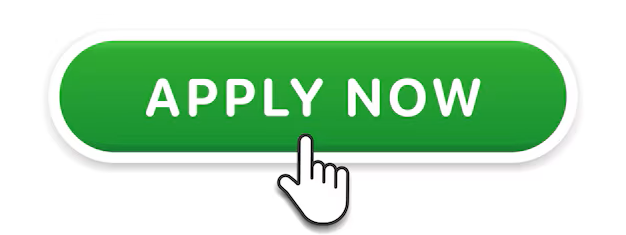Get pre approved in 2 minutes
“We are making every step of the home buying journey faster, more convenient, and accessible for everyone.”
Pros of Buying a Home
Buying your own home offers you the pride of ownership and the freedom to do what you want with your space. You can paint walls, replace carpet, build a garage if you have the space and tear down walls at will without having to go through a landlord for even the tiniest modifications.
On top of doing what you want with your home, owning your own home is a solid and secure method for building equity. Each mortgage payment is one step closer to being able to leverage that equity for further investment opportunities.
On the topic of investment opportunities, buying your first home can be something you enjoy for yourself, but you can also look at the possibility of turning your home into an income-producing property. Whether it’s renting out a bedroom to a roommate or the basement to an independent tenant, owning your own home can be a great alternative source of income.
As a first time home buyer you might be interested in a fixer-upper. In that case a purchase plus improvement mortgage might be for you.
Cons of Buying a Home
The challenge of getting into the home ownership market is no small feat. Perhaps the biggest challenge is coming up with a sufficient down payment. Down payments are determined by the purchase price of the home you are looking at, and in Canada, houses can be very expensive depending on where you buy.
With every home comes the reality of maintenance and repairs. Many of these expenses are foreseeable, but occasionally something unexpected happens and it can be difficult to swallow the cost of these situations.
Finally, when it comes to owning a home, you are at the mercy of the market. Buying and selling at the right time can be a tough thing to predict and there’s always a risk of loss if the value of your home is low if you need to sell quickly.
Moving Forward with Buying Your First Home
While there is notable risk in buying and owning a home, it’s fair to say that both the immediate and long term benefits of owning a home generally outweigh the potential downsides.
Now that you’re feeling confident that home ownership is something for you, let’s discuss how to pull it off.

Finding Enough Money for a Minimum Down Payment
Every home purchase requires a down payment and this can be a big hurdle to jump over to get into the home ownership market. In Canada, down payments can be as small as 5%, but most lenders look for 10-20%.
If you can achieve a higher down payment to reduce your mortgage payments, this can be even more beneficial. All of this can be calculated with a simple mortgage payment calculator that is available on any financial institution website.
Documents Needed
Here are some of the things needed by a broker or lender in order to pre approve you for a mortgage:
- Social insurance number (SIN)
- Proof of employment
- Proof of income
- Tax documents
- Place of residence
- Bank account information
- Credit information
- Purchase agreement
- Gift letters
- Monthly expenses
- Self employment documents
Mortgage Pre Approval
A mortgage pre approval means you’re qualified for a mortgage loan for a given maximum amount. You’re also given an estimate for your monthly mortgage payments. Depending on the lender, an interest rate is locked in for 60 to 130 days.
It’s important to note with a pre-approval you’re not guaranteed to get a mortgage for that maximum amount. The final amount also depends on the purchase price of the property and the amount of down payment you have.
When saving money for your down payment it’s important to also keep some money aside for closing costs, moving and other maintenance costs.
The process usually involves a pre-qualification first to give a high-level estimate, then a pre-approval to give a more accurate figure.

Closing Costs and Associated Home Buying Fees
Closing costs are legal or administrative fees you need to pay when closing your home. There are costs to keep in mind before closing, and after. The average closing costs are calculated by 3% to 4% of the home’s purchase value.
Typical closing costs
Land transfer taxes, legal fees and title insurance/search fees are common but there are additional costs depending on what type of home you buy, and where you’re purchasing.
- Land transfer tax
- Legal fees
- Title insurance
- Title search fees
- PST on CMHC insurance
- Tarion warranty fees
- Land survey fee
- Appraisal fee
- Prepaid utilities / taxes (if applicable)
- HST on new home purchases
Home Financing Advisor (Arman)604-338-7763
Get pre approved in 2 minutes

Fixed Rate Mortgages
A fixed rate mortgage simply means that the interest rate you are paying on the principal amount borrowed will stay the same over the length of the term you have agreed to. Mortgage terms (which are different than the amortization period) can range anywhere from 6 months to up to 10 years. Most fixed rate terms are 3 to 5 years long though.
With a fixed rate term, you can anticipate your mortgage payment being exactly the same every time. There’s no guessing or worrying about whether your payment will be higher than the previous payment. The only thing that will shift over the length of your mortgage term is the ratio of principal to interest within each payment. The front end of your fixed rate term is slanted toward paying more interest than principal while the back end is slanted toward paying off more of the principal amount borrowed. Again, this has no bearing on your payment amount. If you’re looking for predictability and consistency, a fixed rate term can be the way to go.
Variable Rate Mortgages
Variable rate mortgages function differently than fixed rate mortgages in that the interest rate fluctuates over the course of the term. The interest rate on a variable rate mortgage is based on prime interest rates. As the prime interest rate rises, so will your mortgage interest rate. If the prime interest rate decreases, your mortgage interest rate will as well.
Variable rate mortgages typically offer a cheaper rate because of the risk associated with them. The difference may be as minimal as 0.5%, but that can be substantial when you consider how much interest you pay on several hundred thousand dollars of borrowed money.
Benefits Of A Fixed Rate Mortgage
Fixed rate mortgages are advantageous for a couple reasons. The biggest win with fixed rate mortgages is consistency. If you’re not wanting any surprises with your mortgage payment because of a tight budget, a fixed rate mortgage can be a good option.
Additionally, if mortgage rates are extremely low and you feel confident they are about to climb, perhaps you might want to lock into a fixed rate mortgage with a 5-10 year term. A long mortgage term can come with other risks, but if you are confident you won’t be needing to sell and if you feel a particular interest rate is the lowest you might see in a long time, this can be a possible solution for you.
Benefits Of A Variable Rate Mortgage
Variable rate mortgages typically offer the benefit of a lower interest rate because they are subject to the risk of rising down the road. While there is potential for the interest rate on a variable rate mortgage to rise above the fixed rate percentage, the chances are slim. Historically, this is very rare and shouldn’t be much of a cause for concern.
Additionally, if interest rates do rise, you are likely to see very little change in your actual mortgage payments. Instead, the ratio of principal to interest payments within your mortgage payment might shift to favour the interest portion of your payment. On the flip side, if interest rates drop, your overall mortgage payment likely won’t change substantially. Instead, your payments will favour paying back the principal amount borrowed over the interest portion.
In addition to these benefits, variable rate mortgages also give you the option to lock into a longer term at a certain rate. If you notice prime interest climbing at an alarming rate, you have the option to lock into a fixed rate at that particular interest rate for the remainder of the term.

Debt Service Ratios: CMHC restricts debt service ratios to 39% (GDS) and 44% (TDS).
GDS & TDS
Gross Debt Service Formula:
Principal + Interest + Taxes + HeatGross Annual Income
Divided by
Gross Annual Income
Total Debt Service Ratio Formula:
Principal + Interest + Taxes + Heat + Other Debt ObligationsGross Annual Income
Divided by
Gross Annual Income
Condo Fees and Site or Ground Rent: If applicable, 50% of the condominium fees must be included in the GDS and TDS calculations. For chattel or leasehold loans, 100% of site or ground rent must be included.
